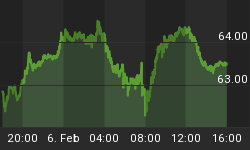Eurozone imbalances continue to grow even as German exports slump. Why? German imports slumped even more, and the German current account surplus grew.
Via Mish-Modified Google Translate from Les Echos, please consider Germany's Export Machine Slumps in March.
The German trade surplus grew in March for the third consecutive month in raw data (to € 18.8 billion after € 16.8 billion in February) detailed figures released Friday, yet the report shows much weakness.
First, calculated seasonally adjusted data, the trade surplus fell slightly on a month to € 17.6 billion after € 17.7 billion in February.
Then, based on gross figures published by the Federal Statistics Office, both imports (€ 75.8 billion) and exports (€ 94.6 billion) increased compared with February, annual rate the situation is quite different.
In one year, exports fell 4.2% after a decline of 2.8% yoy in February. As for imports, their decline is stronger and reached 6.9% compared to March 2012.
In one year, German exports to the euro area fell by 7%, while their decline was limited to 2.2% to European countries outside the euro area and 2.6% to non-European countries.
All of the alleged eurozone austerity (there really isn't much austerity as it's mostly tax hikes instead of spending cuts), has not fixed any imbalances.
Germany's trade surplus managed to grow even with a collapse in German exports. Yet, Germany is slowing rapidly along with the rest of Europe.















